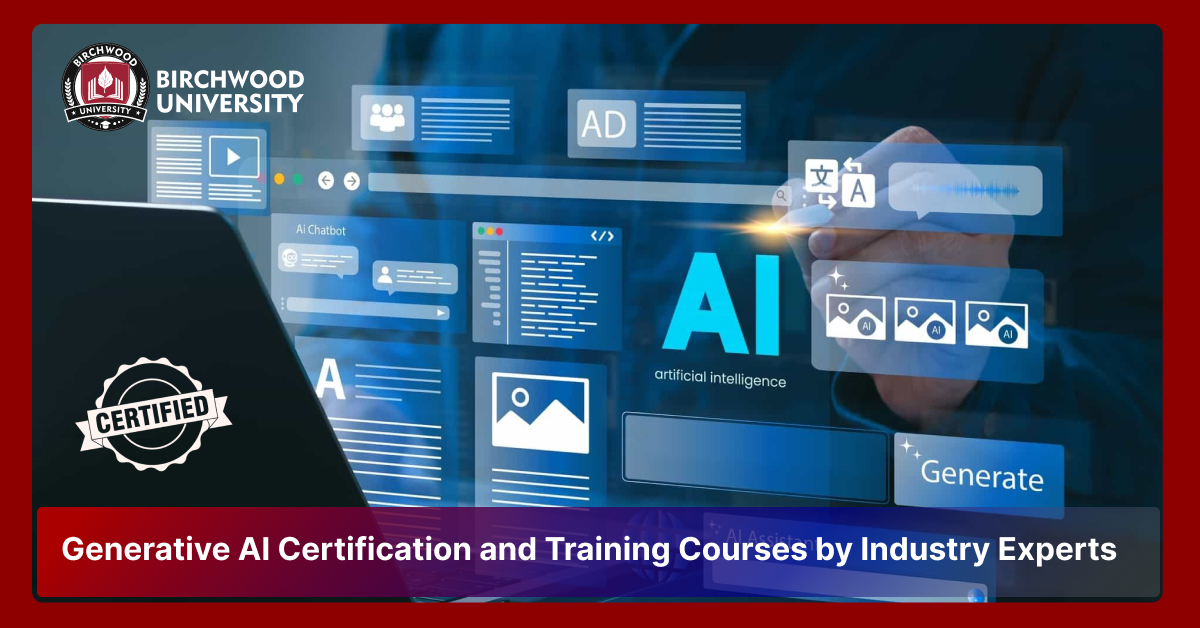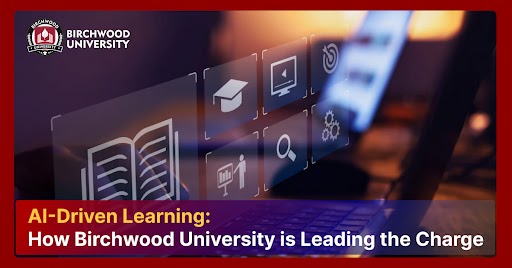Cloud Computing, Blockchain, and Quantum Tech: Emerging Fields for CS Students
Dec 4, 2025
The field of computer science never stops evolving. New technologies appear all the time. Some of these technologies completely change how we work, learn, and solve problems. If you are a computer science student, keeping up with the new technologies is not optional—it's essential, especially for your future.
Right now, there are three domains leading the way in tech innovations: cloud computing, blockchain technology, and quantum computing. These aren't just buzzwords; they're real skills that are in high demand. Companies actively look for students and professionals who are well-versed in these technologies. In this article, we will break down these areas for you. You'll see why there is so much talk about these techs, why they matter, what career paths they can lead to, and how you can start learning and experimenting on your own.
Why These Technologies Are Dominating 2025–2030
The tech landscape from 2025 to 2030 is experiencing a major transformation of a kind hardly ever seen. Not only are cloud computing, blockchain and quantum computing still very significant, but they are also gradually turning into the mainstays of conventional digital infrastructure. Businesses are by and large transitioning to decentralized solutions, energy-efficient computing and AI-driven automation at a fast pace. And these are heavily dependent on the three technologies we are discussing about. With these technologies being the core of the next tech decade, here's the rationale behind their performance:
The Rise of AI Everywhere
AI systems, to be efficient and scalable, depend on the use of cloud services. Besides that, trust is achieved through the use of blockchain and complex problem-solving made possible by quantum computing. Any AI-related process such as autonomous vehicles, real-time speech translation, or security automation, needs a robust computational base which can be provided only by these advanced technologies.
Global Digital Transformation
Massive technology adoption by governments and enterprises worldwide is a reality now. It is a general trend to have cloud-first policies, digital identity is moving toward blockchain, and national research centers are dedicating their resources to quantum computing to accelerate vital research. To students, it means that the demand for their skills will not vanish, rather it will increase at a pace much faster than universities can adapt to.
Why Students Should Care
Technology-related jobs are now expecting candidates to have combined knowledge of two or more areas such as cloud and AI, blockchain and cybersecurity, or quantum computing and data science. Pupils who mix these capabilities will immediately be noticed. Several companies are modifying their criteria for recruitments by placing more emphasis on these specialized fields rather than on traditional programming alone.
Cloud Computing: Learn to Harness the Power of Cloud
If you have used Google Drive, Dropbox, or even streamed Netflix, you have already experienced cloud computing. Cloud computing is simply storing, managing, and running applications over the internet, instead of on your personal computer or local server. You can think of it as renting powerful computers online rather than purchasing them.
Why Cloud Computing Is Important
Cloud computing has been gaining importance since the last 5-10 years because it is transforming business, startups, and development teams. For CS students, deep diving into cloud computing is crucial because:
Scalability: Resources can expand or shrink as needed. For example, a gaming app that suddenly gets millions of users can handle enormous traffic without crashing the app.
Cost-Efficient: With cloud computing, you pay only for the resources you use. There is no need to spend big on servers.
Flexible & Remote: You can access apps and data from anywhere. It supports remote work and collaboration too.
Popular Cloud Services Every Student Should Know
Infrastructure as a Service (IaaS): These include virtual computers, storage, and networks. Example: AWS (Amazon Web Services).
Platform as a Service (PaaS): Build apps without managing servers. For example: Google App Engine.
Software as a Service (SaaS): You can use software without installation. Example: Microsoft Office 365.
These services are available everywhere in the tech industry. Learning cloud computing certainly gives students an edge for real-world projects and internships.
Latest Trends in Cloud Computing
The cloud ecosystem is evolving every year. Many trends in 2025 are influencing the way companies plan and grow their infrastructure:
1. Serverless Computing Everywhere
A growing number of businesses are moving away from handling server by themselves to building fully serverless architectures with the help of AWS Lambda, Google Cloud Functions, and Azure Functions. In this way, they lower expenses, increase stability, and make development cycles faster.
For students, it is becoming equally important to learn how to design serverless applications as to learn standard backend technologies.
2. Edge Computing + 5G
As smart devices, IoT networks, and autonomous systems continue to grow, computing power is moving closer to the user. To reduce latency, cloud platforms are now combining edge computing. This is a great opportunity for students who are curious about embedded systems, IoT, or AI.
3. Cloud-Native Development
The next-generation of development is based on:
Microservices
Microservices break applications into small, independent services, each of which can be updated or expanded without the need to change the entire system.
Containers
Containers package an app with all its dependencies and thus ensure that it runs in the same way anywhere and they also make deployments more efficient.
DevOps pipelines
DevOps pipelines automate the process of building, testing, and deploying code, thus allowing the teams to release their features faster and with fewer mistakes.
Infrastructure as Code (IaC)
IaC uses code to configure and manage infrastructure, which makes the setups not only consistent but also repeatable and easy to maintain.
The knowledge of tools—Kubernetes, Terraform, and Helm—is considered a prerequisite for most internships. These tools assist you in efficiently deploying, scaling, and managing cloud applications–capabilities that organizations consider fundamental nowadays.
4. AI-Optimized Cloud Platforms
Cloud providers have turned to offer specialized instruments for machine learning. Such tools are:
- AWS SageMaker
- Google Vertex AI
- Azure Machine Learning
Students knowing the process of training, deploying, and scaling AI models on cloud platforms will be the most advanced ones.
What You Should Learn in Cloud Computing
Understand various cloud architectures: public, private, and hybrid clouds.
Get practical experience with AWS, Google Cloud, and Microsoft Azure.
Start learning DevOps and containerization with tools like Docker and Kubernetes.
Fundamentals of cloud security, database management, and network optimization.
Take for instance: If you are interested in developing a video streaming app. You need to upload your content to the cloud. Your app can handle spikes in traffic automatically. In addition, you only pay for what you use.
Blockchain Technology: Building Trust in the Digital World
You’ve probably heard about Bitcoin, Ethereum, or other cryptocurrencies. They all run on blockchain. But blockchain is not just about digital money. It’s a way to store and share data securely, transparently, and without relying on a central authority.
How Blockchain Works
Think of blockchain as a digital notebook. Every transaction or record goes into a “block.” Each block connects to the one before it, forming a chain. Once a block is added, it’s almost impossible to change. That’s why blockchain is considered safe and trustworthy.
Why Blockchain Is Gaining Prominence
Blockchain is changing the way industries are working currently:
Finance: You can have fast, secure transactions without banks.
Supply Chain: Blockchain is allowing the tracking of products from origin to delivery.
Healthcare: You can use blockchain to share patient info safely and privately.
Energy Trading: You can track renewable energy credits or peer-to-peer energy trading securely.
Insurance: Blockchain can help in speeding up claims processing and reducing fraud through transparent records.
Real-World Blockchain Use Cases beyond Crypto
Blockchain is evolving far beyond cryptocurrencies in a significant way. Today there are numerous industry applications which students should be aware of, such as:
1. Digital Identity and Authentication
Different governments across the world are developing identity systems based on blockchain that:
- Limit fraud
- Provide safe digital credentials to the citizens
- Allow encrypted medical and educational records
This may be a norm within the next 10 years.
2. Web3 and Decentralized Internet
The transition to decentralized platforms allow:
- Social media owned by the community
- Decentralized storage (IPFS, Filecoin)
- Creator economies with the use of programmable ownership
Students have the ability to develop dApps that operate without central servers and, thus, are scalable and can't be subjected to censorship.
3. Blockchain for AI Transparency
Artificial Intelligence (AI) systems are frequently criticized for being biased, non-transparent, and having decision-making processes that are not understandable. Blockchain guarantees:
- Transparent model training
- Verifiable AI outputs
- Ethical data handling
The convergence of AI and blockchain is being intensively explored and is rapidly gaining momentum as a promising research topic.
4. Enterprise Blockchain
Some big companies like IBM, JP Morgan, Walmart, and FedEx are engaged in the following activities with the help of blockchain:
- Track global shipments
- Prevent fraud
- Automate contracts
- Improve supply chain traceability
It is important and extremely valuable to learn enterprise-grade blockchain platforms like Hyperledger Fabric.
Skills Students Can Learn
How blockchain works: Think of it as a notebook everyone shares. Every new entry is checked by the group before it’s added. Once it’s in, it’s almost impossible to erase.
Smart contracts: These are like tiny robots following instructions you give them. When conditions are met, they do the work automatically. You can code them with Solidity, Rust, or Chaincode.
Blockchain platforms: Ethereum, Hyperledger, Solana… These are the playgrounds where you can test your ideas, deploy smart contracts, and see things in action.
Keeping data safe: Cryptography, security, and data integrity may sound complex, but at heart, it’s just making sure no one can sneak in and change your work.
For example, there is a charity donation platform built on blockchain that can track every contribution. Donors can see all transactions, and nothing can be tampered with. This builds trust and accountability.
Quantum Technology: The Next Big Thing in Computing
Hearing the term "quantum technology" might feel like some technology out of a sci-fi movie. However, quantum technology is becoming real fast. It's a new way of computing that implements quantum mechanics to solve problems that normal computers struggle with.
How Quantum Computing Works
We already know that classical computers use bits: 0 or 1. Quantum computers use qubits. A qubit can be 0, 1, or both at the same time (superposition). These qubits give quantum computers massive computing power.
Why Quantum Computing Demands Attention
Quantum computers are handy for things that regular computers struggle with:
Cracking really tough encryption.
Simulating molecules to help develop new medicines.
Optimizing large systems like traffic flow, logistics, or even financial portfolios.
Why they're important:
They solve really hard problems way faster than regular computers.
They enable possibilities and breakthroughs within AI, health care, financial markets, and materials.
They prepare us for the next generation of computing problems we will face in the future.
Think of it as possibly having a supercharged brain that can resolve problems too large or too complicated for everyday computers.
The Quantum Revolution—What Industries Are Transforming
Quantum computing is still a nascent idea, but the industries are preparing for a massive shift. Here are the sectors where quantum tech will be a game-changer:
1. Cybersecurity & Encryption
Some encryption methods currently used by quantum computers can be broken. It has resulted in:
- Development of quantum-resistant cryptography
- Priority research funding from governments
- Major cybersecurity companies investing more in quantum defense systems
For students who are extremely passionate about cybersecurity, it is necessary to be early adopters of post-quantum algorithms.
2. Healthcare & Drug Discovery
Quantum simulations have the power to:
- Model complex molecules
- Predict drug interactions
- Accelerate vaccine development
This cuts the research time significantly and lowers the overall costs of the pharma industry.
3. Climate and Energy
Quantum Computing is an excellent tool for:
- Optimizing renewable energy distribution
- Designing more efficient batteries
- Modeling carbon capture processes
It is opening up a whole new range of career possibilities for environmental science and computing students.
4. Finance & Risk Analysis
Banks implement quantum computing to detect fraud, manage portfolio risks, and perform market simulations. This sector is open to both PhD and computer science students.
Skills Students Can Pick Up in Quantum Computing
Learning the fundamentals of quantum mechanics and some basic physics concepts.
Programming using tools such as Qiskit, Cirq, or Microsoft Q#.
Learning quantum algorithms like Shor's or Grover's.
Having a solid understanding of linear algebra, probability, and logic.
Here’s a simple example—developing a new drug on a conventional computer could take years. A quantum computer could simulate the molecules in just a few days, allowing researchers to make discoveries much quicker.
It's a combination of thinking differently, coding smartly, and utilizing math to handle issues that ordinary computers just cannot handle easily.
Getting Started with These Techs
Online Classes: Coursera, edX, Udemy—pick beginner-friendly courses in cloud, blockchain, or quantum.
Play & Build: Make apps, smart contracts, or quantum experiments—learning by doing sticks.
Stay in the Loop: Follow blogs, newsletters, and YouTube for the latest buzz.
Real-World Exposure: Intern with startups, labs, or universities—see how things run.
Find Your Tribe: Jump into Discord, GitHub, and forums to learn, share, and meet fellow techies.
It’s a mix of learning, trying, and connecting—the trio that turns curiosity into real skills.
Trends to Watch in Cloud Computing, Blockchain, and Quantum Computing
As a computer science enthusiast, you can always keep an eye on the emerging trends in these areas:
Hybrid Cloud + AI: Smarter apps with machine learning
Blockchain for Government & Healthcare: Secure public services
Quantum-Resistant Cryptography: Preparing for quantum attacks
Quantum AI: Faster and smarter artificial intelligence
How to Build a Portfolio That Gets You Hired
Nowadays, employers are more interested in what you can build rather than the degree you have. A solid, demonstrable portfolio is a great proof of the actual skills, real projects, and genuine problem-solving ability. Check out these easy but effective project ideas that will help you get noticed:
1. Cloud Portfolio Projects
- Deploy a scalable full-stack application available on the web using AWS or GCP
Demonstrate that you are able to run applications, control cloud resources, and manage user requests from the real world by utilizing services such as EC2, Cloud Run, or Load Balancers.
- Develop a CI/CD pipeline with GitHub Actions
Indicate that you have proper understanding of automated testing, continuous deployment, and modern software delivery workflows.
- Create a serverless API with DynamoDB
Explain with the help of the portfolio that you are capable of building simple, very efficient in terms of cost, backend systems that use AWS Lambda and a NoSQL database.
2. Blockchain Portfolio Projects
- Build a DeFi application
Illustrate your knowledge of smart contracts, token swaps, and decentralized financial logic by coding a DeFi app.
- Create a NFT marketplace
Show off the skills of creating digital assets, handling metadata, and implementing blockchain-based ownership through an NFT marketplace.
- Develop a DAO (Decentralized Autonomous Organization)
Demonstrate your understanding of governance contracts, community voting mechanisms, and Web3 app development by creating a DAO.
- Implement a supply-chain smart contract
Show off your ability to solve hard industry problems by implementing transparent and tamper-proof blockchain workflows for supply-chain management.
3. Quantum Computing Projects
- Employ Qiskit to solve organizational problems
Illustrate your knowledge of quantum algorithms and their superior performance over classical algorithms.
- Simulate quantum circuits
Prove the capability to generate, verify, and evaluate quantum logic gates and the change of state of the qubit.
- Construct a quantum random number generator
Emphasize a handy feature of quantum mechanics and demonstrate originality inn the application of quantum principles.
Displaying these projects on GitHub, LinkedIn, personal websites, and your resume is a very quick way of getting the attention of recruiters–thus, you are the one who shows that you are capable of developing real systems, not just study them.
How to Prepare for Jobs in These Fields
- Earn cloud certifications like AWS, Azure, or Google Cloud to validate real-world cloud skills.
- Enroll in blockchain developer courses to get knowledge of Solidity, smart contracts, and platforms like Hyperledger.
- Understand quantum computing using IBM Quantum Experience through which you can practice circuits and algorithms.
- Work on open-source projects to showcase your skills in collaboration, writing clean code,a dn being part of the community.
- Take part in hackathons on Web3, AI, and cloud to build quick, innovative projects for your portfolio.
- Meet other professionals through tech meetups, Discord groups, and LinkedIn to get mentorship and job opportunities.
- Create an online presence by sharing your projects or writing brief technical posts.
- Keep up with coding interviews and system design to sharpen your problem-solving and communication skills during the hiring process.
Conclusion
For CS students, diving into fields of cloud computing, blockchain, and quantum computing can open high-demand careers. While these technologies are still in nascent stages, you can start learning them by taking up online degree courses, building projects, staying curious, and keeping on learning—as the future belongs to those ready to adapt, innovate, and create.






